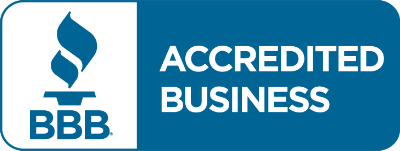How to Treat Overdose at Home
Any drug overdose, no matter the specific drug, is always a medical emergency. When an overdose occurs, a swift response is essential as drug overdoses can be life-threatening.
For some people, the idea of going to a facility may not be acceptable. The stigma of drug and alcohol abuse, along with privacy concerns, discourages individuals from seeking treatment. For these individuals, drug overdose treatment at home is an excellent option.
A private detox nurse can respond quickly to a drug overdose and provide help at the person’s home. The nurse collaborates with a physician trained in addiction medicine to administer life-saving medications and treatments quickly. When needed, the nurse, trained in detox and withdrawal, can guide the individual through the detox process as well.
Drug overdose treatment at home can make the difference between getting the necessary medical attention or not. To protect their reputation, some people will risk an overdose instead of going to the hospital. This can have fatal consequences. The at-home drug overdose interventions offer total privacy as well as quality medical treatment.
About Drug or Alcohol Overdose
An overdose occurs when someone consumes more of a substance than the body can safely metabolize. The psychological effects that occur from overdose will vary based on the substance involved, as well as other factors.
Drug overdoses have dominated the national news for several years now, usually involving opioid prescription drugs or heroin. According to the Centers for Disease Control, more than 70,000 people died from a drug overdose in 2017. However, every year there are overdose deaths associated with a wide range of substances, including:
- 17,000 deaths involving prescription opioids
- 15,000 deaths involving heroin
- 11,000 deaths involving benzos
- 5,000 deaths involving meth
- 2,200 deaths involving alcohol poisoning or binge drinking
Many reasons why individuals may overdose on a substance including:
- being careless about the dosage
- using drugs after a period of abstinence
- accidental, or intentional overdose (suicide).
Obtaining substances on the street or online increases overdose risk because the contents of the drug may be unknown.
Researchers have found that heroin and illicit sources for prescription medications contain fentanyl, an extremely potent synthetic opioid. Individuals should discard leftover prescription pills. Storing them in the medicine cabinet increases the risk of misuse.
Signs of an Overdose
When an overdose occurs the individual will be in obvious distress. Timely medical attention is essential, whether at home or in a hospital. Signs of a drug or alcohol overdose might include:
- Loss of consciousness
- Vomiting
- Mental confusion
- Cool, clammy skin
- Sweating
- Shortness of breath
- Chest pain
- Irregular vital signs, either increased or decreased pulse rate, temperature, blood pressure, or heart rate
- Coma
Do not leave the individual unattended; instead, take the necessary steps to obtain essential treatment. For intentional overdoses, the individual will require psychiatric intervention. When someone overdoses on opioids, first responders have a drug called naloxone. Quick administration can revive the person.
Drug Overdose Treatment at Home
We closely monitor individuals and their loved ones who choose in-home overdose treatment.
Family members can share crucial information with the private nursing team. This includes any history of addiction or chemical dependence, the person’s current prescription medications, and their doctor’s contact information.
An assessment will determine the extent of potential poisoning. Lab tests will show how the substance affects organs, often alongside a drug screening. Drug overdose treatment may involve:
- Gastric lavage, or stomach pumping, will remove any unabsorbed substances from the stomach
- By reducing the amount of substance absorbed in the stomach and digestive tract, activated charcoal provides treatment
- Sedatives or restraints, the individual is violent or agitated, posing a danger to self or others
- Antidote medications can help reverse the effects of the overdosed substance.
- IV fluids, vitamins, or glucose in case of alcohol poisoning
- Oxygen therapy
We perform these interventions to prevent death and aid in the healing process.
Getting Help for a Substance Use Disorder
A drug overdose often motivates someone to seek professional help for substance use disorder. An in-home detox nursing team can provide private detox and withdrawal support.
Case management provides referrals to outpatient or residential treatment after the detox phase. Though skipping this crucial step after completing detox may be tempting, it constitutes a serious mistake.
Therapy helps people change their addiction behaviors. We teach new, healthy ways of thinking and acting. People learn coping skills and create plans to prevent relapse. They also join a recovery community.
Some individuals receive medication-assisted treatment, which we monitor within a formal program and aftercare.
Medicine Overdose Treatment at Home
Once the individual is out of immediate danger the focus will begin to shift toward detox and treatment. The first step in recovery is the detox and withdrawal phase. Which can last one to two weeks depending on the substance of abuse and the acuity of the substance use disorder.
An in-home detox nurse can provide medical and psychological support while assisting the individual through the withdrawal symptoms. The nurse will monitor vital signs and forward them daily to the physician in charge. Medical interventions help minimize pain and discomfort during the detox process. Medications used might include benzos, mood stabilizers, opioid antagonists, opioid agonists, non-opioid agonists, and over-the-counter medications.
Withdrawal symptoms will vary based on several factors, including:
- Substance of abuse
- Length of addiction history
- Usual levels of consumption
- General health status
- Age
- Presence of a co-occurring mental health disorder
Some common withdrawal symptoms include:
Withdrawal Symptoms from Drinking Alcohol
- Nausea and vomiting
- Shakiness
- Headache
- Feeling irritable
- Insomnia
- Sweating
- Anxiety
- Depression
- Delusions
- Hand tremors
- Loss of appetite
- Seizures
Opiates
- Muscle pain
- Nightmares
- Confusion
- Agitation
- Restlessness
- Clammy skin
- Lethargy
- Excessive hunger or loss of appetite
- Shakiness
- Congestion
- Watery eyes
- Slurred speech
- Paranoia
- Nausea and vomiting
- Feelings of detachment
- Stomach cramps
- Hallucinate
- Severe anxiety
- Depression
Benzos
- Muscle spasms
- Insomnia
- Sweating
- Irritable
- Restlessness
- Headache
- Tremors
- Excessive sensitivity to stimuli
- Memory and concentration problems
- Detachment
- Panic attacks
- Nausea and vomiting
- Muscle and joint aches
- Racing pulse
- Blurred vision
- Delirium
- Depression
- Anxiety
- Grand mal seizures
In-home detox can provide the supervision and expertise to manage withdrawal symptoms as they arise. If delirium tremens emerges during alcohol detox, we will provide the individual with emergency services.
At-Home Addiction Treatment and Recovery
Addiction recovery requires changing how you think and react to triggers through multiple methods. Treatment is available in either an outpatient or residential setting.
Outpatient treatment provides a flexible approach. People can continue to work and live at home. They attend therapy for a certain number of hours each week.
Residential treatment involves 24-hour supervision and therapeutic support. People with opioid or moderate to severe alcohol use disorders typically benefit from residential treatment.
Treatment elements include:
- Psycho therapy. Individual therapy sessions help to process and heal underlying issues that may be factors in the addiction behaviors. Moreover, cognitive-behavioral therapy can help individuals adapt their responses to stressors or triggers, establishing essential skills for recovery.
- Support Groups. Support groups help people by providing peer support and encouraging active participation in their treatment. Group sessions involve a small number of participants led by a clinician who will encourage sharing and supportive behaviors.
- Medication. Certain individuals find relief through medications for a co-occurring mental health disorder. By managing the symptoms of the disorder through medications such as mood enhancers, addiction treatment is more effective.
- Holistic complementary activities. Given that stress is a major contributor to relapse, modern addiction treatment integrates relaxation techniques. Learning how to manage stress and induce relaxation is an important coping skill.
- Recovery Participation. Participation in local recovery meetings such as A.A. can encourage social support and accountability.
A drug overdose, while a serious incident, presents an opportunity to address addiction and commit to recovery.



